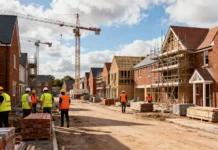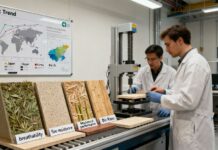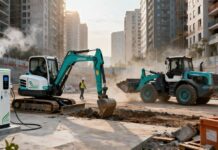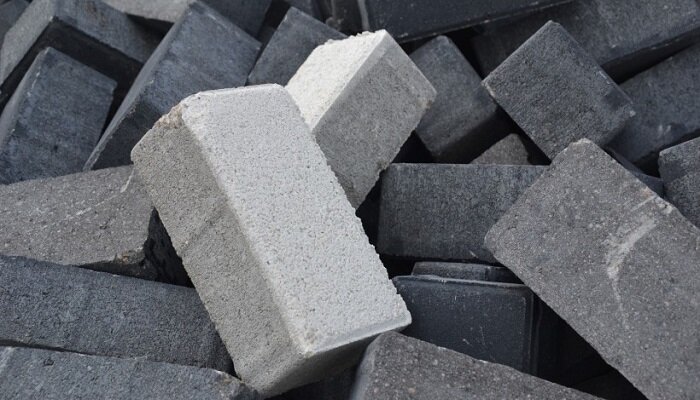Japanese construction company Shimizu Corporation has developed a carbon-negative resin concrete, which achieves a net negative CO2 emission, and applied it for the first time in a road construction project in Fukuoka City.
The process involves drying sludge emitted from residual concrete and absorbing CO2 from the atmosphere. The dried sludge is then converted into a powder form and mixed with recycled lime to create resin concrete, thus achieving carbon negativity. This innovative resin concrete surpasses ordinary concrete in terms of shear strength and resistance to salt damage, enhancing its advantages. Shimizu Corporation plans to expand its application to various civil engineering and architectural structures in the future.
The carbon-negative resin concrete was co-developed in March with Fukuoka-based concrete products maker Yamau. It is currently being used as covers for drainage ditches. Resin concrete is a material that combines inorganic aggregates and fillers with liquid resin as a binder, hardening into a solid form. Notably, it does not use any cement hydration products, such as water or cement, which emit large amounts of CO2 during production. Compared to ordinary concrete, resin concrete boasts higher shear strength, enabling the production of lighter and thinner components. Its superior resistance to salt damage makes it an excellent alternative to corroded steel products and is considered effective for structures in coastal areas































